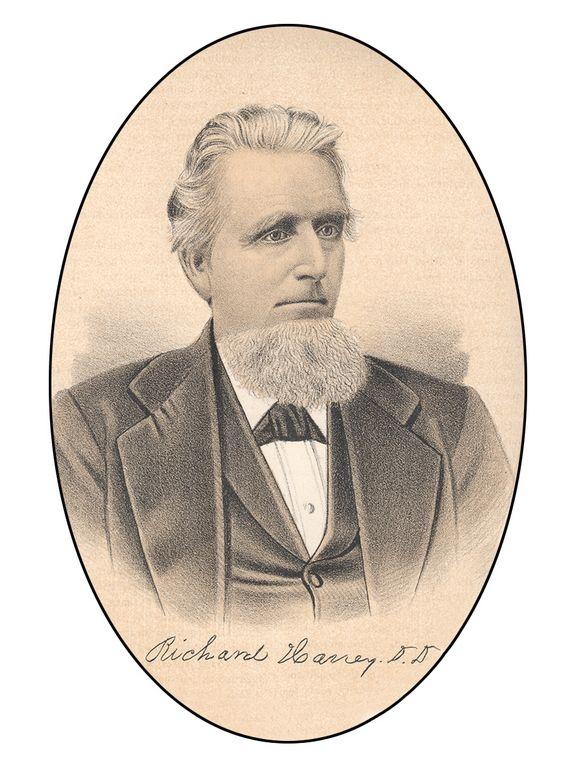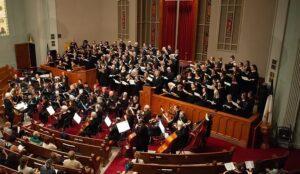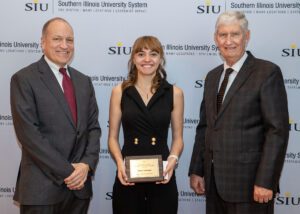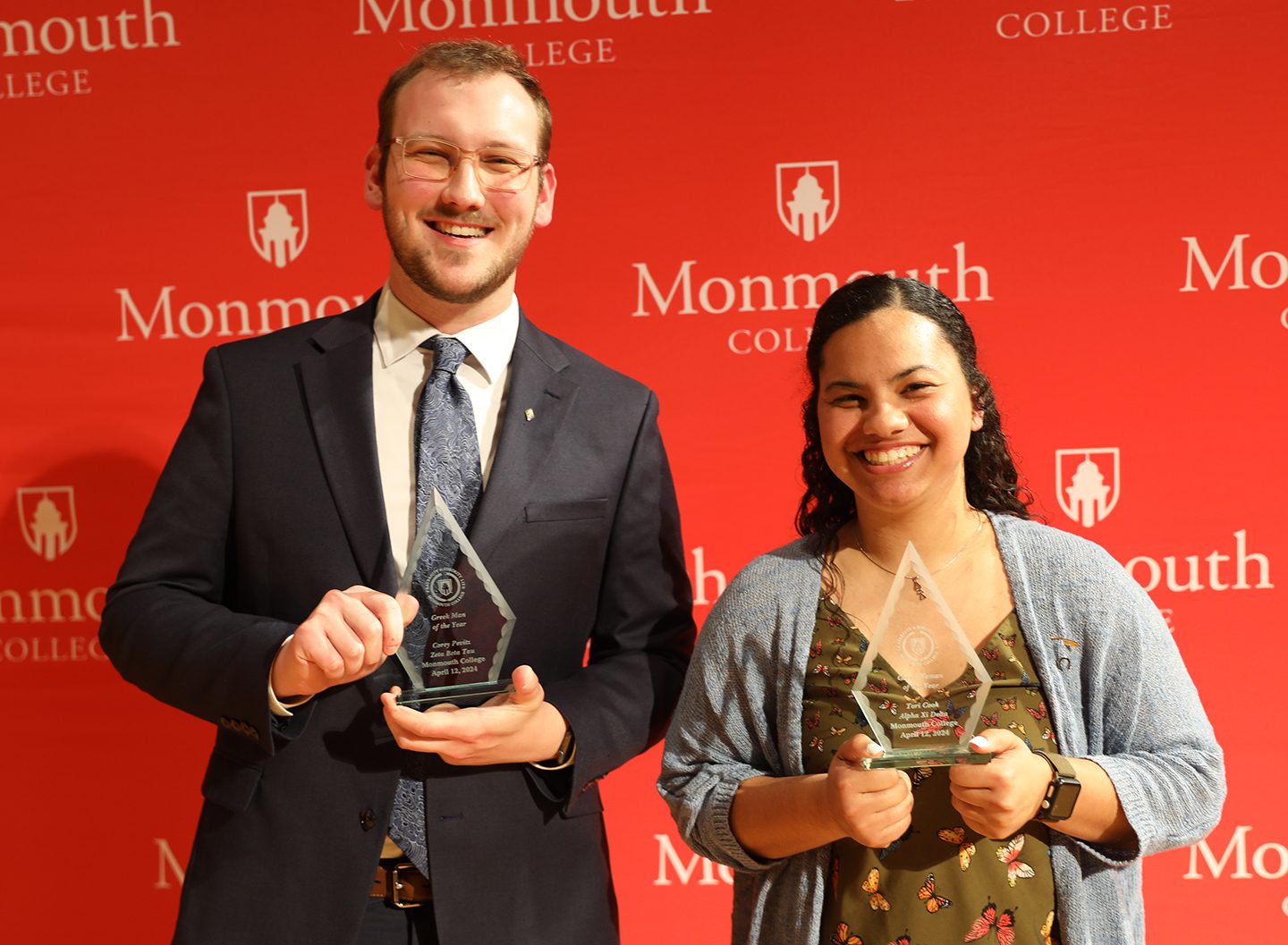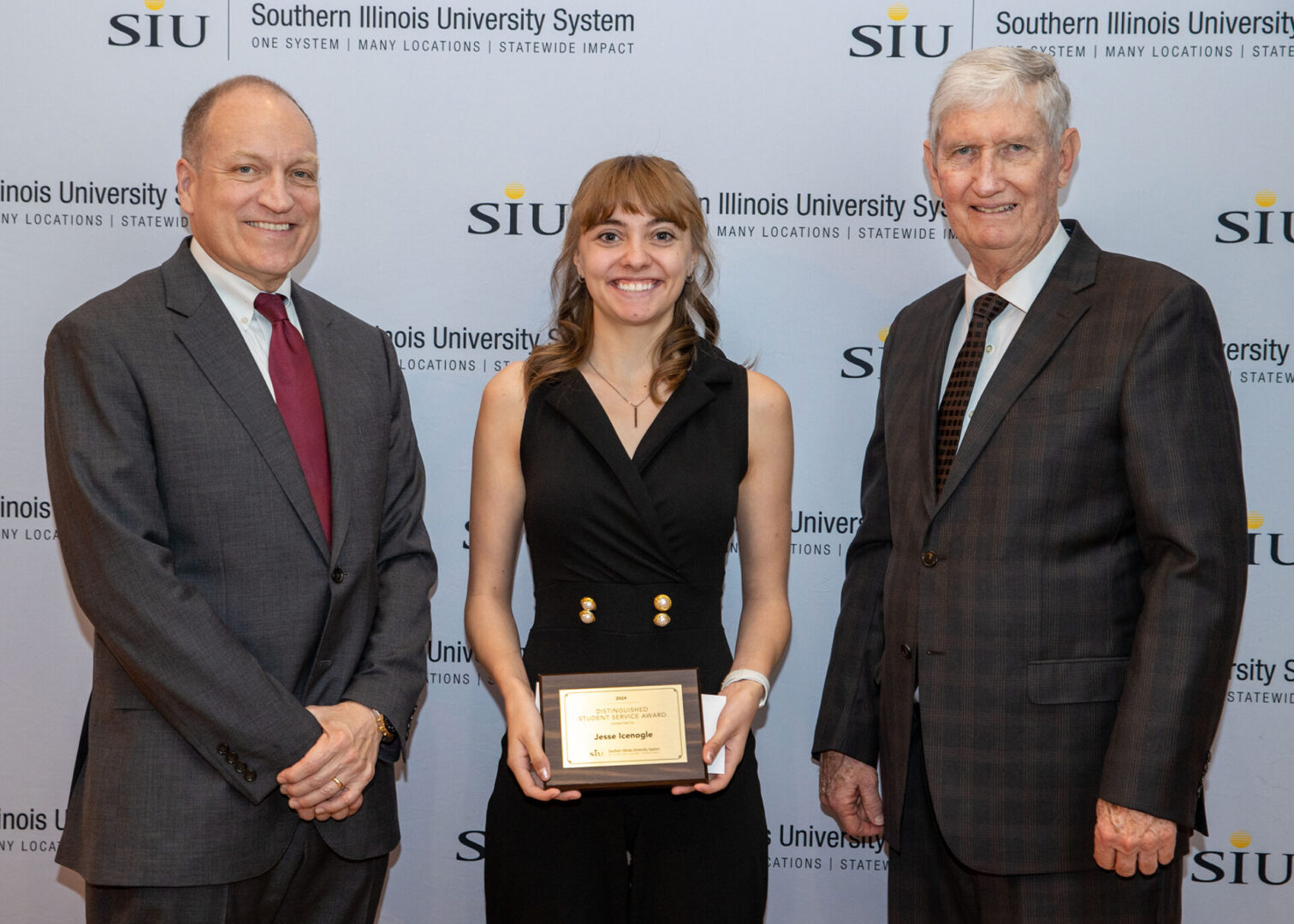Story Courtesy of Jeff Rankin, Monmouth College Historian Author and Literacy Critic.
Monmouth’s historic Quinby House was the home of a founder of Monmouth College. What is perhaps less well known is that it was also the home of a founder of a Big 10 university.
Built in 1867 by Judge Ivory Quinby, a charter trustee of Monmouth College, the large residence remained in the Quinby family for nearly a century after his death before it was deeded to the college to be used as a presidential residence. So how did the university founder fit in? One only need look in the front yard for a clue.
Near the curb on North Sixth Street is a weathered stone block, which in the days before automobiles was used for passengers to descend from carriages and buggies. Carved into the stone is the name HANEY.
Ivory Quinby died a young man in 1869, just two years after Quinby House was completed. His widow, Mary, continued to live in the rambling house with her daughter, three sons and a Swedish servant. An important part of her life was the Methodist Church, which she faithfully attended and supported financially. Sometime between 1869 and 1972, she became personally acquainted with a Methodist minister who was presiding elder for the Monmouth district.
The Rev. Richard Haney was no ordinary minister. He was as famous throughout Illinois as the legendary Methodist circuit rider Peter Cartwright, of whom he was a contemporary. Haney’s physical stamina was legendary. In 1845, while riding on horseback form Peoria to a camp meeting in Preemption, Haney and his horse were struck by lightning. His left stirrup was melted, but miraculously he and the horse survived.
Popularly known as “Uncle Dick,” it was said of Haney that “his grand physical proportions and his flashing eyes added to the impressiveness of his delivery. His voice was sweet, pleading and strong. In the pulpit, at camp meeting, wherever he preached, men yielded.”
While Haney’s influence as an evangelist and leader in the Methodist Church cannot be overstated, perhaps his most lasting accomplishment occurred in 1850 when he was pastor of the Clark Street Church in Chicago. Haney served as chairman of a meeting at which Northwestern University was envisioned. His name appears first on the university’s charter, and he served as a Northwestern trustee for nearly 50 years.
Haney’s wife, Adalane, had died in 1865 after having borne him 10 children. Haney’s hectic preaching schedule helped keep his mind off his loss, but by 1877 he had reached the age of 65 and was ready to settle down to a more domestic existence. On May 1 of that year, he married Mary Quinby and Monmouth became his new home.
But Haney remained active in semi-retirement, serving as an agent of the Conference Claims Society, of Hedding College, and of Conference Temperance. He also served terms as pastor at Keithsburg, Hermon, Altona, Orion, Cameron and Altona. At the time of his death in 1900, Haney was considered the oldest practicing Methodist minister in the world.
Haney’s life began in Washington County, Pennsylvania, where he was born in 1812—the son of a Methodist minister with strong Scotch-Irish roots. When he was 3, his family moved to Ohio, where he attended Norfolk University and became proficient in Lantin, Greek and Hebrew. It was said he was the only man west of the Allegheny mountains who had read the Hebrew Bible clear through.
In 1836 he joined the Illinois Conference of the Methodist Church, and before the Civil War served as presiding elder of the Peoria, Macomb and Canton districts. In 1861, he enlisted in the Union army and served as chaplain for the Sixteenth Illinois volunteer infantry. While at Corinth, he became seriously ill and was cared for by the wife of Gen. John A. Logan. When he survived what had been considered near certain death, she accompanied him home to Western Illinois. Years later, Haney would serve as department chaplain of the Illinois Grand Army of the Republic.
Haney’s convalescence was brief. At the session of the Central Illinois Conference in Galesburg in 1862, Haney was chairman of the committee on the state of the country and drafted resolutions calling on President Lincoln to free every slave in the United States. It was the first such action ever taken by an ecclesiastical body. The resolutions were forwarded to the president and were widely published by the press.
Haney’s war illness was not the only time his life was in danger. He was twice stricken down by cholera and once by typhoid fever, but after each instance he snapped back stronger than ever. It therefore came as a surprise when he was finally felled by a heart attack at age 88 in 1900.
Haney had gone to Galva for the 60th birthday of his son, who was a pastor there. It was an especially joyous occasion, as he got to see his grandson, who was his namesake, preach from the pulpit in the Galva church—representing four generations of Haney pastors. He then went to his former pastorate at Altona, where he was to preach the following Sunday. While spending Friday night at the home of an old friend, he became suddenly ill and died the following morning.
It was in Altona on Sunday morning that Haney was eulogized in the first of three funeral services. That night, his remains were taken by train to Monmouth, where he lay in state at Quinby House.
The next afternoon, the Monmouth Methodist Church overflowed with mourners from across the state and a large delegation from the local G.A.R. A quartet performed special music, and pastors from Monmouth, Bushnell, Keithsburg, Galesburg and Abingdon took turns in leading the service.
That night, Haney’s remains were transported to Peoria, where a final funeral service was held prior to his interment in Peoria’s Springdale Cemetery, next to his first wife.
A newspaper in Cherryvale, Kansas, provided a fitting coda to the eminent minister’s life: “Dr. Haney belonged to an early type of preachers. Modern methods of temporizing and tolerance were unknown to him. He believed that right was right and wrong was wrong, and he fought the devil on that plan, stoutly, uncompromisingly and fearlessly, and died as he had lived—fighting gallantly to the end.”
For Maple City Memories, I’m Jeff Rankin.


